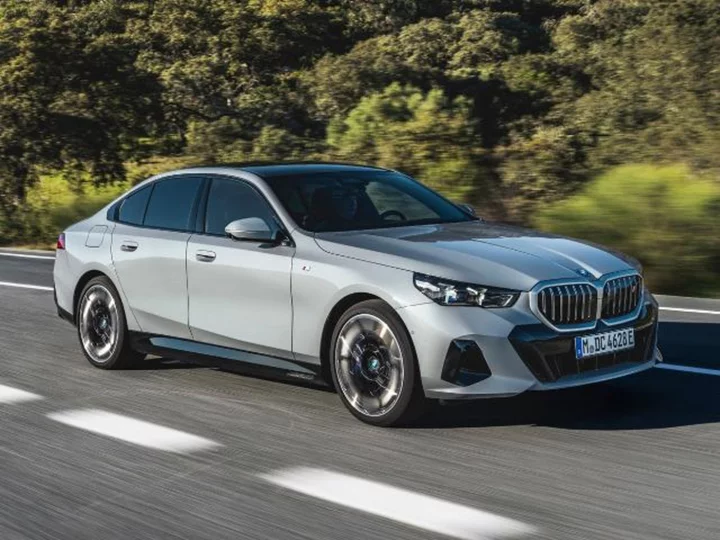In the new BMW 5-series sedan, unveiled Wednesday by the German luxury automaker, drivers will be able to change lanes on the highway just by looking to the side.
The car's optional Highway Assistant system allows drivers to go long distances on major highways without touching the steering wheel or pedals. This sort of feature is now offered by a number of major automakers, but BMW adds this novel capability: Drivers will be able to change lanes just by looking at one of the outside mirrors.
Automated lane changes are possible in many similar systems but, ordinarily, the driver has to request it, or assent to the car's suggestion for a lane change, by using the turn signal.
With the new BMW system, if the car's automated driving system suggests a lane change -- say, if the car ahead is going too slowly -- the driver only has to look at the corresponding side mirror and the car will do the rest. The system relies on a camera mounted behind the steering to monitor the direction of the driver's gaze.
The same camera also checks that the driver is watching the road at all times or, if not, warnings will flash inside the car and, eventually, the system will not work. (If the driver seems to be incapacitated, the car will slow to a stop and the hazard lights will come on.)
If the car has not, itself, suggested a lane change, the driver can still request one by tapping the turn signal stalk to indicate which side.
Sensors must detect that there is enough free space in the other lane and that no other vehicles are approaching at high speed on that side. If it's all clear, the car will move over. The system can work at speeds up to 85 miles per hour.
The new BMW 5-series will be available, beginning in October, in several gasoline-powered versions with four- and six-cylinder engines and as a fully electric model. The electric version, the i5 eDrive40, will cost $67,000, to start, and will be able to drive an estimated 295 miles on a full charge.
Plug-in hybrid versions of the car will be available some time next year.









